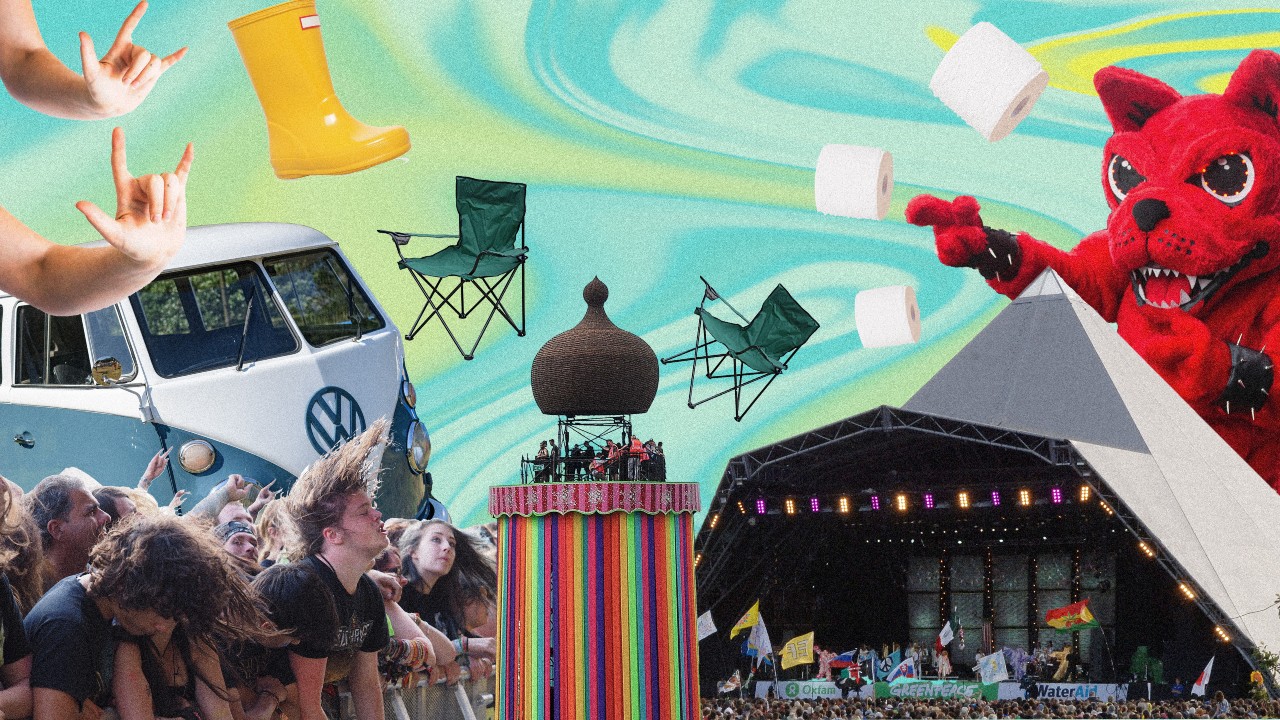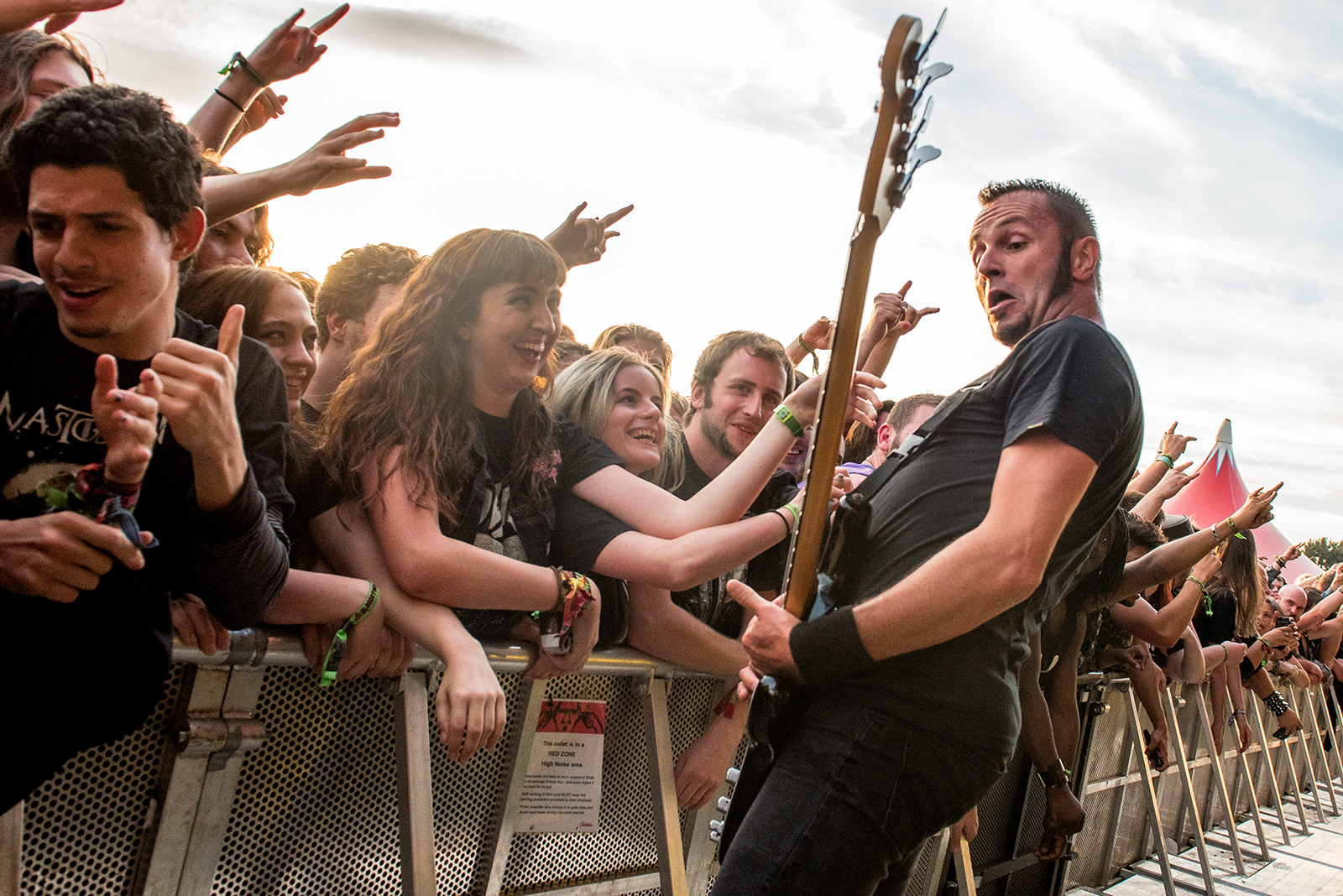Should we be worried about the future of our festivals?
With Glastonbury having been cancelled for a second consecutive year, we ask industry insiders what festival season 2021 is really looking like – and if the festivals we love can survive another fallow year

Select the newsletters you’d like to receive. Then, add your email to sign up.
You are now subscribed
Your newsletter sign-up was successful
Want to add more newsletters?

Every Friday
Louder
Louder’s weekly newsletter is jam-packed with the team’s personal highlights from the last seven days, including features, breaking news, reviews and tons of juicy exclusives from the world of alternative music.

Every Friday
Classic Rock
The Classic Rock newsletter is an essential read for the discerning rock fan. Every week we bring you the news, reviews and the very best features and interviews from our extensive archive. Written by rock fans for rock fans.

Every Friday
Metal Hammer
For the last four decades Metal Hammer has been the world’s greatest metal magazine. Created by metalheads for metalheads, ‘Hammer takes you behind the scenes, closer to the action, and nearer to the bands that you love the most.

Every Friday
Prog
The Prog newsletter brings you the very best of Prog Magazine and our website, every Friday. We'll deliver you the very latest news from the Prog universe, informative features and archive material from Prog’s impressive vault.
It was the announcement that, in recent weeks, had come to feel inevitable. Rumours were swatted away and ticket-holders crossed their fingers, but in the end it wasn’t a tremendous surprise to learn that Glastonbury – the colossus in Britain’s festival calendar – would be cancelled for a second year due to ongoing Covid restrictions.
As co-organiser Emily Eavis told The Guardian, the decision reflected “everything from restrictions on public transport capacities to availability of the medical staff we need to work at the event, to the simple fact that mass gatherings are currently still legally prohibited and it’s not at all clear when that will be reversed.”
Following the news, many music-lovers immediately resigned themselves to another festival-free summer. The New York Times quoted Olivier Garnier, spokesman for France’s Hellfest (set for 18-20 June) as saying “It’s sent a very bad signal”.
Elsewhere, a measure of optimism prevailed. Download festival (set for 4-6 June) Tweeted: "Rest assured we’re continuing to work behind the scenes to get ready for Download this summer and hope to have more news for you by March 1.” (Download booker Andy Copping declined our request for further comment).
So, where do the festivals we love actually stand in all this? The short answer is that no one really knows.
Hi, rest assured we’re continuing to work behind the scenes to get ready for Download this summer and hope to have more news for you by March 1st. In the meantime, stay safe.January 26, 2021
For starters, the cancellation of Glastonbury doesn’t automatically mean the rest will fall. A uniquely gargantuan operation, the Worthy Farm bonanza hosts 210,000 people across a huge site that takes many weeks to assemble. By this logic, smaller festivals that take place later in the year, and require less time and work to get ready, may stand a chance of going ahead.
For Rachael Greenfield, director of Bloodstock festival – scheduled for 11-15 August, with a comparatively small capacity of 20,000 – the outlook is one of quiet confidence. Still, as with all the industry figures we contacted, the question of whether transmission rates will go down and allow restrictions to be lifted remains pivotal, as does the safety of staff and punters.
The latest news, features and interviews direct to your inbox, from the global home of alternative music.
“We are currently planning for this year’s festival to proceed,” Greenfield tells us. “We are quietly confident that the vaccine roll-out will have a hugely positive impact quite quickly to see events resume later this year without social distancing, but likely with other measures to help keep transmission of this virus at bay.
"However, we have to prepare for all eventualities and will take whatever guidance the Government and Public Health put forward.”
Over in Germany, Wacken Open Air festival – 29-31 July, with a capacity of 75,000 – are also treating it as business as usual for now.
“Our entire team is at full speed on implementing this year’s edition of Wacken Open Air,” co-founder Thomas Jensen tells us. “We hope that the government measures take effect and that a return to live events will be possible this summer. The development of vaccines makes us confident and the numerous positive messages from our fans give us a lot of strength.”
While welcomed, it isn't clear what the roll-out of vaccinations – which rightly prioritises the elderly, vulnerable and key workers – will mean for prospective festival goers. Who will be Covid-immune in time for which events, if anyone? How much of a difference, in real terms, will it make?
“How many of those people [who’ve been vaccinated] are going to Bloodstock or Download?” asks Gez Walton, front-of-house engineer/tour manager for artists including Michael Monroe and Orange Goblin. “With the 80,000 that are going to be in a field at Download [full capacity: 110,000], what’s changed apart from maybe 20% of them have been vaccinated?”
“I’m cautiously optimistic about what 2021 can deliver, but I am a realist about it,” he adds. “The bigger [events], we might not see them until next year. I’m prepared for that.”

Perhaps the obstacle most frequently cited – and at the centre of a recent parliamentary inquiry hearing into the future of British music festivals – has been a lack of Covid-ready insurance.
The British government has provided £1.57billion of direct support for arts across the UK, which last year saw over 1,385 venues benefit from a £257million grant. So far, however, it has resisted committing to an insurance scheme that would provide cover for festivals, with a Department For Digital, Culture, Media & Sport spokesperson citing the need to agree upon “a realistic return date for festivals and other large events”.
But it’s an exasperating chicken-and-egg situation; how does one commit to “a realistic return date” without first being assured of financial security, in the event of another cancellation? It’s this lack of cover, festival organisers argue, that is making advance preparations so problematic.
This is in contrast to the £500million Film & TV Production Restart Scheme, launched last year to cover Covid-related insurance costs. Meanwhile the German government has announced a €2.5bn (£2.3bn) fund to cover event cancellation costs, and this month Austria started an insurance scheme to cover events that cannot be rescheduled.
“There will definitely be casualties this year with some festivals unable to return if this year's events are postponed yet again,” Greenfield says. “The Government needs to act now to underwrite event insurance to include Covid to reduce the financial risk on festivals. Germany and other European countries have already supported their festivals by doing this. The UK has a world-leading reputation when it comes to the array of festivals we host and this needs to be safeguarded by our Government.”
“There’s a lack of clarity about how we go forward,” Steelhouse festival promoters Mikey Evans and Max Rhead tell us. “That being said, we have a bill, we have our dates and currently we’re working towards Steelhouse going ahead this year [scheduled for 23-25 July, 7500 capacity]. Of course, there are challenges, the health and safety of everyone – audience, artists, crew and volunteers – is paramount, but we’ll do our very best to meet those challenges.
“We have been able to access grant support from the Welsh Government which has been very welcome,” they continue. “The Major Events Unit at Visit Wales have also been a great help – their words of support, their guidance and enthusiasm for Steelhouse Festival has been very much appreciated.”

Still, what happens if – and it’s still a big ‘if’ – festival season 2021 is another write-off? Can they come back in 2022?
Speaking at the aforementioned parliamentary inquiry hearing into the future of British music festivals, Anna Wade, director of communications and strategy for Boomtown Fair, said: “It is unlikely that most events or festivals could weather the storm of no event happening in 2021”.
Conversely, Emily Eavis has rebuked speculation that Glastonbury could go bankrupt after a second fallow year, despite the festival having lost £5m after cancelling in March 2020. “We would have been in trouble if we’d hedged our bets and pushed on regardless to March and then had to cancel,” she said. “We’d have spent a lot of money by then, money which we wouldn’t get back.”
And what would it all mean for artists and their crews? For any band, festivals are a massive part of any promotional cycle – not to mention a golden opportunity, especially for emerging artists, to grow their fanbase.
“If you’re a support band on a tour and you play a festival, you’re not just playing to the fans of the band you’re supporting,” says Walton. “There’s a curiosity [at festivals], people coming to check out developing artists. So they’re important for any developing artist for that reason; you get to play for a much wider audience.”
Is it possible to say what it might mean for bands and crews, if 2021 was another write-off?
“I think the playing field would be different in ‘22, if ‘21 is a write-off. What that means I don’t know exactly, but it goes across all levels; what risks promoters might want to take, what line-ups will look like, the size of festivals... It’s such an unknown.”
“It’s definitely more about all the smaller and independent bands and artists, clubs and venues,” Jensen agrees, when asked if we should be worried about the future of festivals. “On top we must pay attention to all the hundreds and thousands of people working in different branches in the music and live industry who are currently massively affected.”

The next couple of weeks will be extremely telling. Speaking yesterday in the House Of Commons, Boris Johnson stated that "the overall picture should be clearer by mid-February" in terms of how successful the current restrictions have been in driving down infections. For festivals this could mean signs of when they can happen again safely.
In the meantime, the live music industry waits with bated breath, cautious optimism and – like all music fans – anticipation for when events can happen again fully, whenever that may be.
Says Greenfield: “Live music is the cathartic release that everyone is desperately craving to heal the wounds we’ve all endured through this pandemic. When the doors are allowed to open again, we and the music industry will be ready.”
“I’m absolutely 100% confident that it will come back,” Walton agrees. “And when the green light is given, and the confidence of the public is restored, it will be very special. It’s like ‘2021? Hanging in the balance’. But ‘2022? Phwoar!’”

Polly is deputy editor at Classic Rock magazine, where she writes and commissions regular pieces and longer reads (including new band coverage), and has interviewed rock's biggest and newest names. She also contributes to Louder, Prog and Metal Hammer and talks about songs on the 20 Minute Club podcast. Elsewhere she's had work published in The Musician, delicious. magazine and others, and written biographies for various album campaigns. In a previous life as a women's magazine junior she interviewed Tracey Emin and Lily James – and wangled Rival Sons into the arts pages. In her spare time she writes fiction and cooks.
